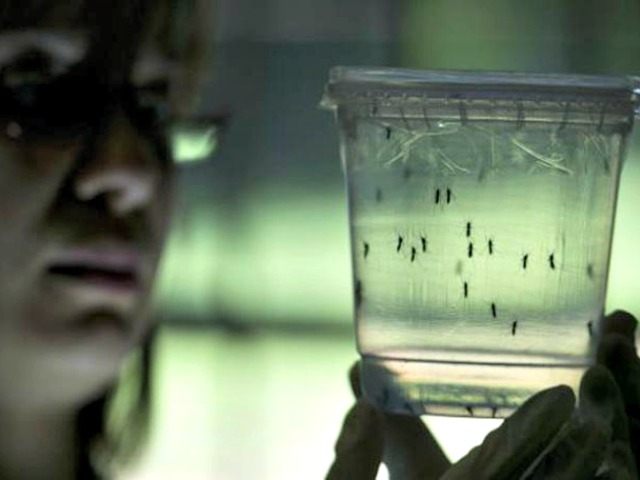Venezuelan opposition legislator José Manuel Olivares claims the country has under-reported cases of the Zika virus and the country lacks necessary medical supplies to properly combat the outbreak sweeping the region.
“I hope that President Nicolas Maduro will not continue putting policy and ideology before the health and life of Venezuelans,” he declared.
Olivares, chair of the Subcommittee on Health in Venezuela’s National Assembly, visited Washington to appeal for aid from the World Health Organization (WHO). He said he estimates that between 400,000-500,000 Venezuelans have contracted the Zika virus.
“What we did was provide continuity to the declaration of the humanitarian health crisis that the Venezuelan Parliament made,” he told Infobae. “This declaration seeks to solve the health crisis in the country, marking a roadmap to seek solutions to the deep crisis of health, lack of medicines, increases in the levels of maternal mortality, cancer mortality, and child mortality.”
Venezuela’s Pharmaceutical Federation declared a “humanitarian emergency” in January, announcing that 150 drugs were completely unavailable nationwide and that some pharmacies had resorted to selling veterinary medications to people as a last resort.
On February 12, the government confirmed three deaths related to Zika while also noting an increase in the rare Guillain-Barré syndrome. Venezuelan President Nicolás Maduro said officials only confirmed 319 cases of Zika, but doctors have monitored 5,221 suspected cases since February 8. At that time, doctors documented 21 deaths related to the syndrome.
Olivares attacked the government for the lack of transparency.
“In its first statement about Zika, the government says it has only 3,000 suspected cases and acknowledges 255 cases of the Guillain-Barré syndrome,” he said, adding:
When one reviews the literature, you realize that one in 1,000 to 2,000 cases of Zika developed the syndrome. That is the statistic.
This means the numbers don’t add up. This is a big lie from the government because if you have 255 Guillain-Barré cases you cannot have 3,000 suspected cases of Zika. You have to have at least 250,000…
From November to the first week of February there were almost 360,000 cases of fever. We do not know why. They are extras and different from those expected these months. We maintain that there are 400,000 to 500,000 cases of Zika in Venezuela.
His statements echo worries within the Venezuelan medical community for the past month. At the end of January, the community demanded officials publish all statistics on the Zika virus. They stopped publishing epidemic lists last year.
“The Ministry of Health must be the first to issue warnings about the existence of a public health threat; they cannot be the last one to speak,” said Jose Oletta, former health minister who now works with the Network to Defend National Epidemiology. “We already have a weakened health care system, which tends to make these problems spread more rapidly. Add to that the lack of information and it’s a perfect storm.”
The Venezuelan Society of Public Health claimed surveys from non-governmental organizations discovered “a rise of acute fever in the past six months that could correspond to 400,000 cases of Zika.”
Colombian Health Minister Alejandro Gaviria claimed Venezuela has hidden hundreds of thousands of Zika cases, which could cause major problems for the other South and Central American countries fighting the disease. He insists the socialist country is the weakest link in the fight because officials have “no systematic reporting of the data.” The lack of data worries Colombian officials because the countries share borders.
“This is a serious problem,” stated Gaviria.
The Norte de Santandar province, which shares a border with Venezuela, has the highest amount of Zika cases in Colombia. It also has the largest amount of pregnant women with the virus.
China confirmed its first Zika case after a 34-year-old man returned from Venezuela. He stopped in Hong Kong before he connected to his final destination. Hong Kong officials expressed concern since its home to the Aedes aegypti mosquito, which carries Zika, dengue, and chikungunya.

COMMENTS
Please let us know if you're having issues with commenting.